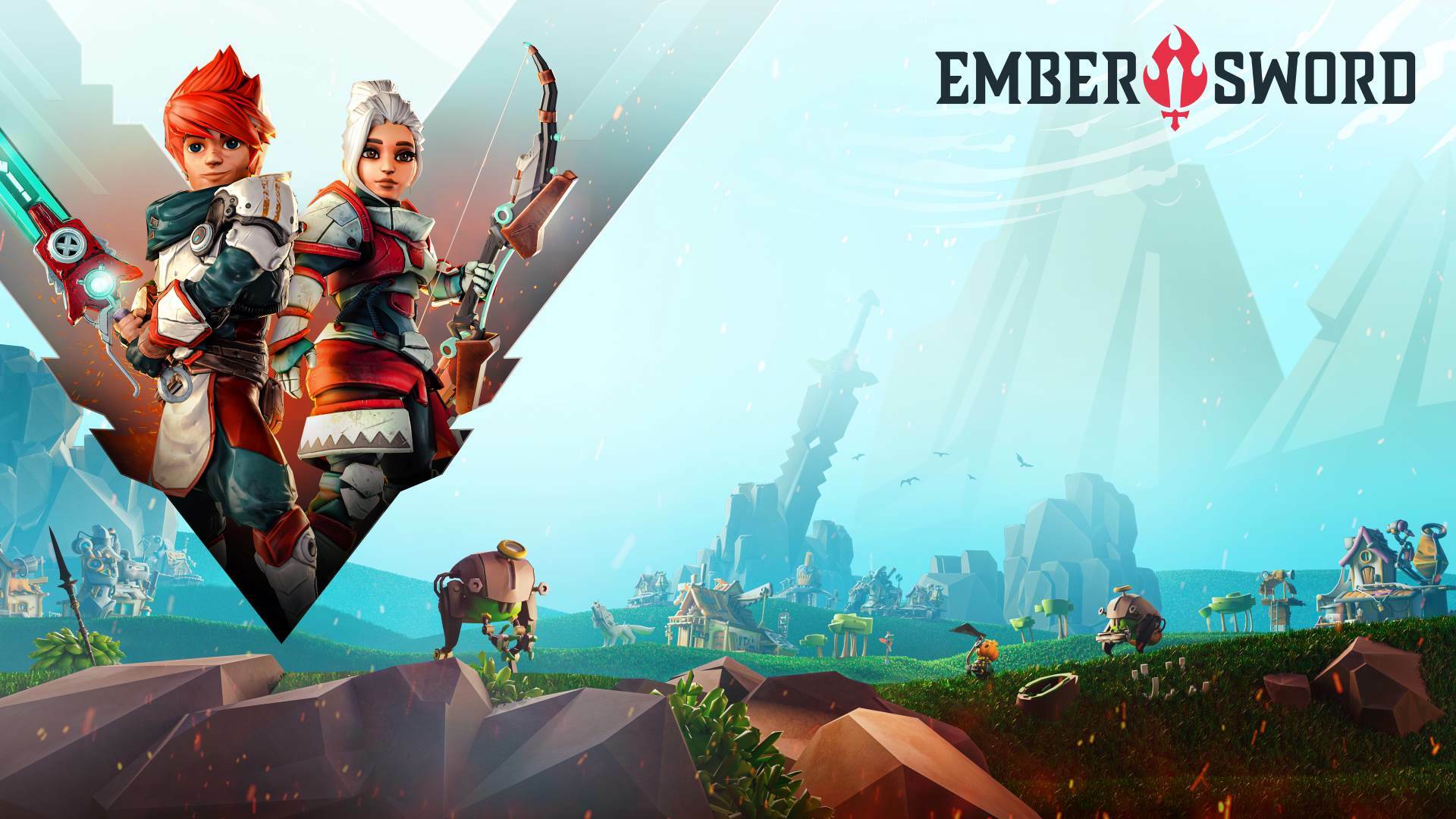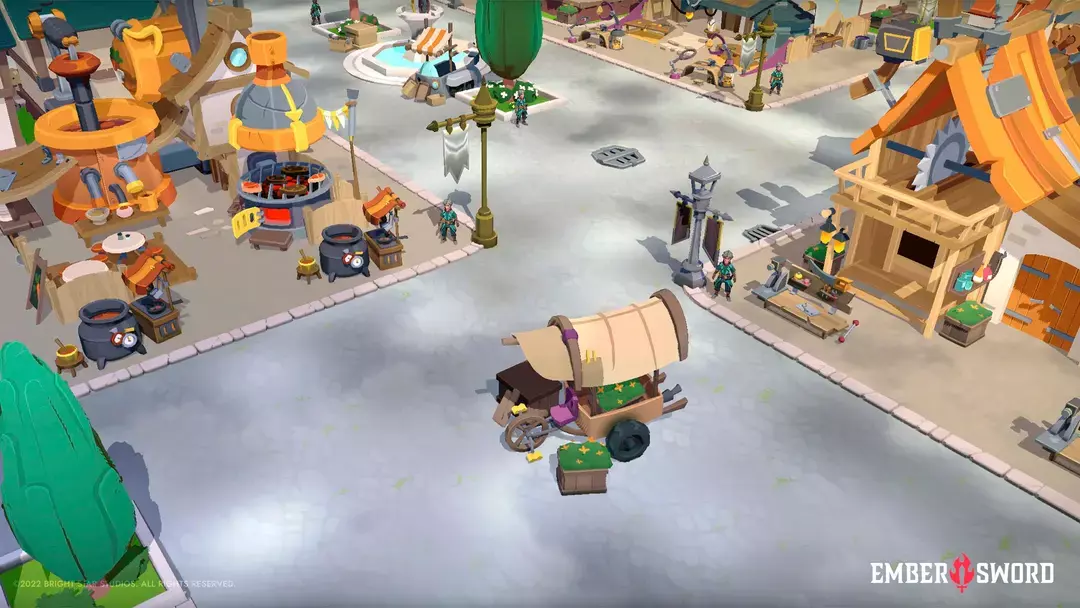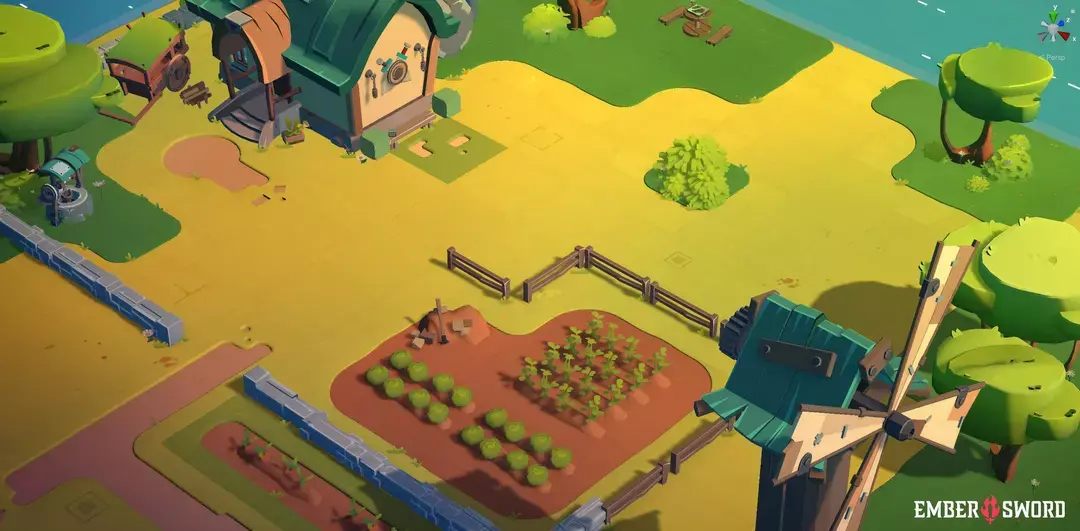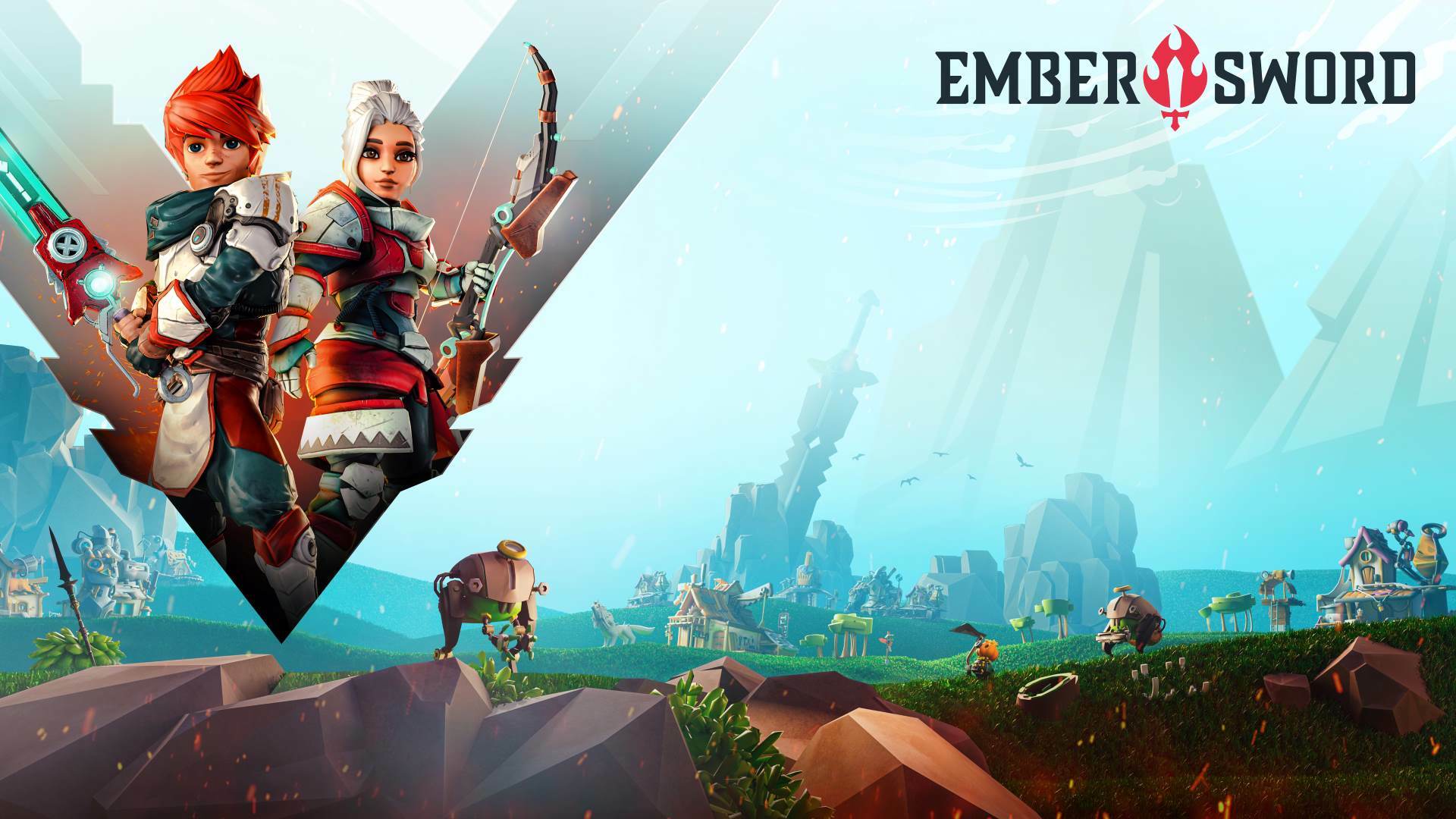In this interview, Mark Laursen, CEO and Founder of Ember Sword, and Mo Fadl, Chief Publishing Officer, share their insights on the development process, the unique challenges of creating a blockchain-based game, and the core values that drive their vision for Ember Sword.

Ember Sword" is an upcoming blockchain-based, player-centric fantasy MMORPG, that is being developed by Bright Star Studios. "Ember Sword" aims to combine the traditional elements of classic MMORPGs with blockchain technology to create a dynamic and player-driven gaming experience.
Recently, we had the opportunity to interview the brilliant minds behind Ember Sword, Mark Laursen, CEO and Founder, and Mo Fadl, Chief Publishing Officer at the Bright Star Studios headquarters in Copenhagen. In this interview, they shared their insights on the development process, challenges that come with creating a game on blockchain technology, and their vision for Ember Sword and the player experience they are aiming to deliver.
Ember Sword: An Interview With Mark Laursen And Mo Fadl

| Mark Laursen | The Founder and CEO of Bright Star Studios. Comes from years of FPS and MMORPG professional gaming, as well as several founder level and management positions at FortemWorks, Starcade IO, IO Games LLC, PlayOn ApS, Donkey Crew, and more. |
| Mo Fadl | Chief Publishing Officer at Bright Star Studios. Comes from senior strategic positions at Riot Games and Wargaming, as well as being the co-founder of Lazha Games. |
This interview has been edited and shortened for better understanding.
What games have inspired you to create Ember Sword?
Mark Laursen: Of course, we played a lot of MMO RPGs. We took a lot of inspiration from Dark Age of Camelot, due to its multiple nations. RuneScape, Ultima Online, World of Warcraft, and Dark Age because it has the best PVP to date and fantastic sound design.
Mo Fadl: You can really see a reflection of that in Ember Sword's game design. Our approach goes back to the classic MMO RPGs, where players make intentional choices to shape their utility and value within the game world. As a player, your actions truly influence your surroundings, empowering you to define your play style, whether you prefer to be a lone-wolf or an active member of the in-game society.
What are the core values that you would like to communicate to the player?
Mark: I'd say it is that your time and what you do matters.
Mo: Time is the only currency that we never get back. We want players to be relevant and have them invest their time to create themselves and who they are in the game.
The core thing is also the value exchange. Value exchange can be anything, from resources that you exchange with another player to services that help you with dungeons or PVP, but you still have to make deliberate decisions on what path you want to take. If you decide to learn crafting or only farm a certain tree, it will cost time to master this profession.
But this way, they will stand out and add value to their close circle of friends or people they often play with. What is very important to us is that players make these decisions about their role in the game and invest the time in specific fields because their time matters.

What are the special challenges you've encountered while working on a blockchain game?
Mark: Working with blockchain technology has taught us that there are no guidelines, and we have to try a lot of things out to see what works. We also have to observe how the field is changing because there is always new technology coming out. In comparison to when we started back in 2018, things have evolved so much. And coming down to sentiment, of course, there are a lot of gamers that are very much opposed to blockchain itself. I would say that gamers are very cynical, in a way that they were also opposed themselves to free-to-play and many other things. I understand that there are many bad examples out there. But we want people to understand that this is nothing dangerous; it's just a new technology that is being used behind a game to their benefit. This technology doesn't take away anything from the player.
We know that there are a lot of examples that require you to pay something upfront or use a specific module like a wallet. And we didn't really want that; the game does that naturally so that players don't have to worry about putting their wallet in.
Mo: One thing we would also like to add is there are no "blockchain games"; they are just games. The same way that you also wouldn't call a game that runs on AWS servers an AWS game. It is just a technology that adds value.
We're making a game with a great technology called "blockchain" which allows us to add value to the user experience. We want our players to be in the center, they create our content, they are the source. If a player buys a cosmetic, we will share the sale with the player, the landowner, and so on. Compared to traditional transactions and sales in games where the developer gets 100% of the sales, this method is way more gamified and fits better into the gaming culture that I've always wanted my whole life. It's not about this corporate monster anymore that owns everything and where the player has no control. No, this technology allows the players to be a part of it and create something. It's not pay to win, and it's not pay to earn as well. It's just a great game that allows them this element of cosmetics and land, which any game also had, but they actually get their share as well, which just makes it fair.
Mark: We believe that all games have inherent value. The time you put into a game will always be worth something to somebody else. Like World of Warcraft, Counter-Strike, DOTA, League of Legends... All of these games have huge gray and black markets where people trade. So you see that games already monetize. The only thing we're doing here is making it more safe and secure and putting it out in the open where everyone can kind of see the transactions on the blockchain.
Ember Sword should be fully released by 2024. What are your plans until then?
Mo: We got a lot of player feedback in the last playtest, and we are very honest with ourselves. The most important thing for us is that the game is going to be fun. We do that with its core elements like combat, gathering, crafting, and trading. All these core elements are being polished and done in a way that we haven't seen them in a game before. In the beginning of the next year, we hope to share these big changes that we have made to Ember Sword's core elements. Until we get to the official release, we want to create a game that is fun all the way, and that people don't feel like they are wasting their time on.
In Conclusion
"Ember Sword" is a fusion of inspiration from classic MMORPGs, a commitment to player-centric values, and the innovative use of blockchain technology. The team at Bright Star Studios is dedicated to create an engaging, player-driven experience where time and decisions truly matter. Their journey to the full release in 2024 involves constant improvement and a focus on making the game an enjoyable and rewarding adventure for all players.


































